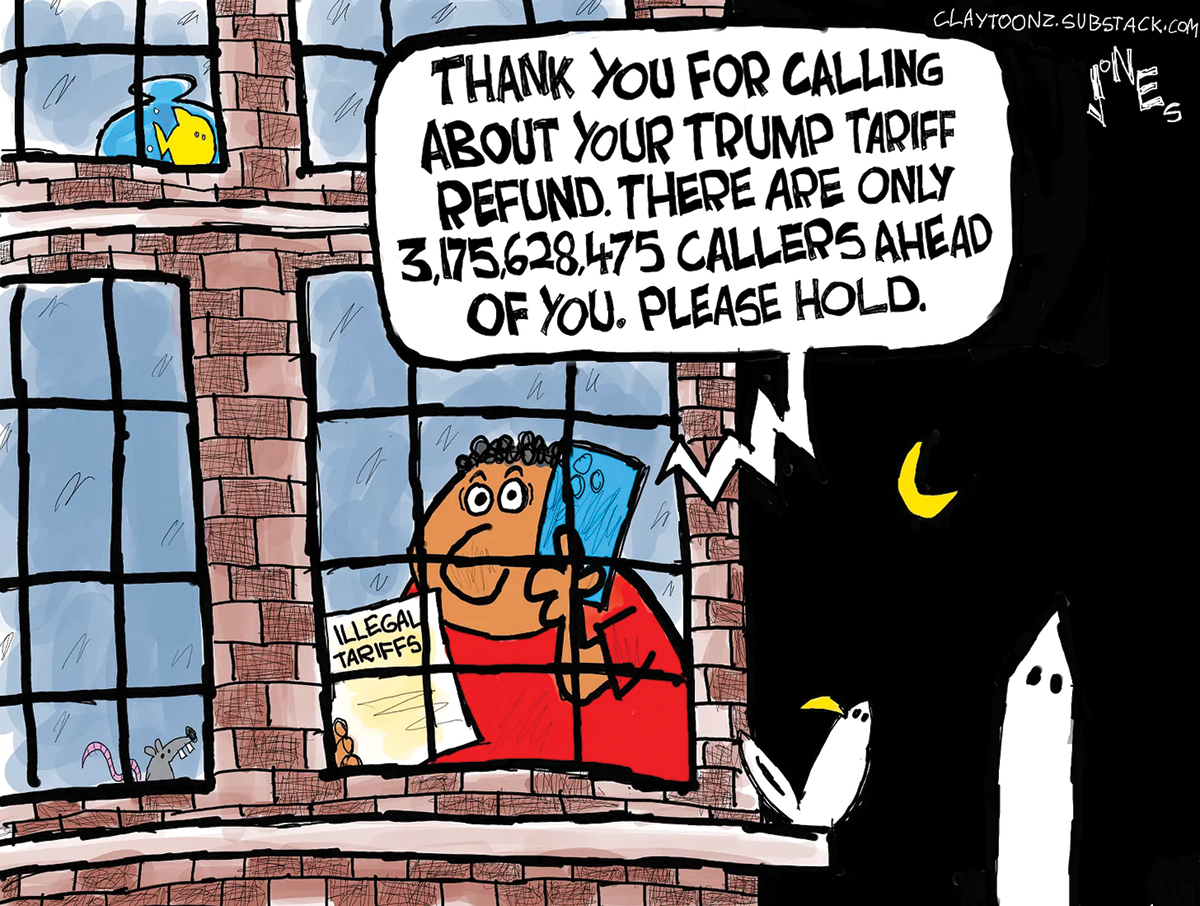The new coronavirus may be mutating to a less deadly form


A free daily email with the biggest news stories of the day – and the best features from TheWeek.com
You are now subscribed
Your newsletter sign-up was successful
Life will not return to normal anytime soon, even if states lift COVID-19 lockdowns in an attempt to revive hard-hit economies. Face masks will be de rigueur, people may be "trapped indoors for months," and crowded public events are out, science reporter Donald McNeil Jr. writes at The New York Times, citing more than 20 health and science experts. Until there's a vaccine, "if Americans pour back out in force, all will appear quiet for perhaps three weeks. Then the emergency rooms will get busy again."
Among the many things we don't yet understand about this new coronavirus is how deadly it is or how many people have been infected. "Fatality rates depend heavily on how overwhelmed hospitals get and what percentage of cases are tested," and those numbers keep getting revised in hard-hit areas, McNeil reports. People who die of the disease at home or in overwhelmed hospitals are not counted, but people with few or no symptoms are never tested, so "if you don't know how many people are infected, you don't know how deadly a virus is."
The changing fatality rate is one reason the models keep fluctuating, McNeil says, but "there may be good news buried in this inconsistency: The virus may also be mutating to cause fewer symptoms. In the movies, viruses become more deadly. In reality, they usually become less so, because asymptomatic strains reach more hosts. Even the 1918 Spanish flu virus eventually faded into the seasonal H1N1 flu."
The Week
Escape your echo chamber. Get the facts behind the news, plus analysis from multiple perspectives.

Sign up for The Week's Free Newsletters
From our morning news briefing to a weekly Good News Newsletter, get the best of The Week delivered directly to your inbox.
From our morning news briefing to a weekly Good News Newsletter, get the best of The Week delivered directly to your inbox.
While we don't know the fatality rate or level of contagion, the "refrigerated trucks parked outside hospitals tell us all we need to know: It is far worse than a bad flu season," McNeil writes. How the pandemic ends depends on the virus' lethality, medical advances, and how individuals behave, he adds. "If we scrupulously protect ourselves and our loved ones, more of us will live. If we underestimate the virus, it will find us."
A free daily email with the biggest news stories of the day – and the best features from TheWeek.com
Peter has worked as a news and culture writer and editor at The Week since the site's launch in 2008. He covers politics, world affairs, religion and cultural currents. His journalism career began as a copy editor at a financial newswire and has included editorial positions at The New York Times Magazine, Facts on File, and Oregon State University.
-
 Political cartoons for February 23
Political cartoons for February 23Cartoons Monday’s political cartoons include tariff refunds, Epstein Island visits, and more
-
 Can Keir Starmer save the Chagos deal?
Can Keir Starmer save the Chagos deal?Today's Big Question Opponents confident they can scupper controversial agreement as PM faces a race against time to get it over the line
-
 China and the rise of the humanoid robots
China and the rise of the humanoid robotsThe Explainer The country’s ‘bustling’ robotics industry is dominating the global market, though experts are split on how concerned we should be
-
 A Nipah virus outbreak in India has brought back Covid-era surveillance
A Nipah virus outbreak in India has brought back Covid-era surveillanceUnder the radar The disease can spread through animals and humans
-
 Trump HHS slashes advised child vaccinations
Trump HHS slashes advised child vaccinationsSpeed Read In a widely condemned move, the CDC will now recommend that children get vaccinated against 11 communicable diseases, not 17
-
 Covid-19 mRNA vaccines could help fight cancer
Covid-19 mRNA vaccines could help fight cancerUnder the radar They boost the immune system
-
 FDA OKs generic abortion pill, riling the right
FDA OKs generic abortion pill, riling the rightSpeed Read The drug in question is a generic version of mifepristone, used to carry out two-thirds of US abortions
-
 The new Stratus Covid strain – and why it’s on the rise
The new Stratus Covid strain – and why it’s on the riseThe Explainer ‘No evidence’ new variant is more dangerous or that vaccines won’t work against it, say UK health experts
-
 RFK Jr. vaccine panel advises restricting MMRV shot
RFK Jr. vaccine panel advises restricting MMRV shotSpeed Read The committee voted to restrict access to a childhood vaccine against chickenpox
-
 Texas declares end to measles outbreak
Texas declares end to measles outbreakSpeed Read The vaccine-preventable disease is still spreading in neighboring states, Mexico and Canada
-
 RFK Jr. shuts down mRNA vaccine funding at agency
RFK Jr. shuts down mRNA vaccine funding at agencySpeed Read The decision canceled or modified 22 projects, primarily for work on vaccines and therapeutics for respiratory viruses
